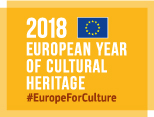November 23, 2018
Joint Statement by ICOM EUROPE and ICOM Germany on preserving the autonomy of museums on the occasion of the 100th anniversary of the end of the First World War
(in the frame of the ICOM EU and ICOM Germany European Conferenced 2018 and the European Year of Cultural Heritage)

Museums collect, preserve, research and communicate. They represent nature and art, culture, technology and society in different contexts, put the focus on the light and shadow sides and thus enable all visitors to gain their own insights. They do not avoid uncomfortable subjects but involve them in research and engagement. In order to meet these social expectations, museums need maximum autonomy and museum professionals require high professionalism.
At a time when more and more people are trying to dominate vocally, or have privileged access to public opinion, these ethical standards are in jeopardy, and museums may be curtailed and politically exploited for their independence. Repeatedly, ICOM, ICOM EUROPE and ICOM Germany have pointed to the responsibility of museums for the controversial contents of the past and present as well as their independence – 2014 with the conference “Museums, Politics and Power” (organized by ICOM Russia, ICOM USA and ICOM Germany ); 2017 with the International Museum Day under the motto “Contested Histories. Saying the Unspeakable in Museums” and the conference “Difficult Issues” (organized by the national ICOM committees from Iceland, Sweden, Norway, Finland, Denmark and Germany), as well as in April 2018 with the “ICOM Statement of the Independence of Museums”.
ICOM EUROPE and ICOM Germany take the anniversary of the end of the war in 1918 as an opportunity to encourage all museums to continue their commitment to independence and freedom of opinion, art and culture and not to hide uncomfortable facts: In November, the end of World War I marks the centenary of the anniversary. In the former war nations, there are different cultures of remembrance regarding the causes, course and outcome of the Great War. The centenary is therefore celebrated in different countries with different accents.
In 2018 we can no longer rely on our own experience of the horrors of war so that the museums have a special responsibility. To remember means to raise awareness of current and future developments and to work against forgetting. That’s up to date. This is why museums must, in particular, prepare their collections well and study them in line with growing scientific standards and requirements. Only in this way can they authentically convey the events, causes and consequences of the war to younger generations. They present the events as multi-perspectively, in their different branches and approaches, in order to give visitors a vivid understanding of the different cultures of remembrance.
A particular European challenge is to give space to the sometimes diverging national and group-specific cultures of remembrance and, at the same time, to highlight the similarities in the experiences of war so that common learning becomes possible. This is why ICOM EUROPE and ICOM Germany are working together on this internationally important task. With their joint conference “Museums, Borders, and European Responsibility – 100 Years after WWI” (23 to 25 November, Ludwig Museum Koblenz), a platform is presented to museum experts from numerous former war nations for professional exchange and future cooperation.
ICOM EUROPE and ICOM Germany, November 2018
Pdf for uploading